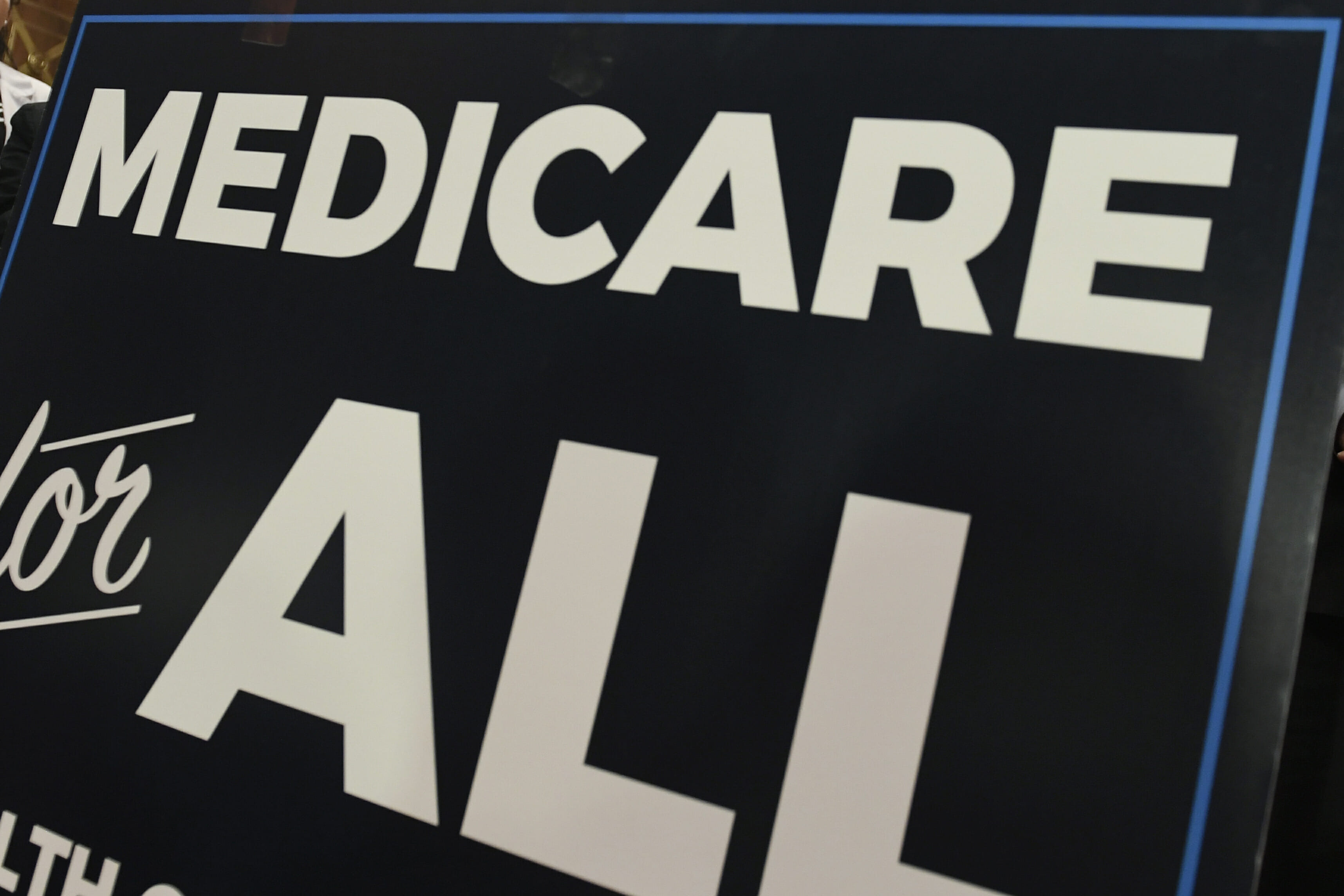
'Medicare for All's' rich benefits 'leapfrog' other nations
WASHINGTON (AP) — The “Medicare for All” plan embraced by leading 2020 Democrats appears more lavish than what other advanced countries offer, compounding the cost but also potentially broadening its popular appeal.
The plan from Vermont Sen. Bernie Sanders would charge no copays or deductibles for medical care, allowing only limited cost-sharing for some prescription drugs. It would cover long-term care at home and in community settings. Dental, vision and hearing coverage would be included.
But while other countries do guarantee coverage for all, the benefits vary significantly. Canada, often cited as a model, does not cover outpatient prescriptions and many Canadians have private insurance for medications. Many countries don’t cover long-term care. Modest copays are common.
“Medicare for All proposals would leapfrog other countries in terms of essentially eliminating private insurance and out-of-pocket costs, and providing very expansive benefits,” said Larry Levitt, a health policy expert with the nonpartisan Kaiser Family Foundation. “It raises questions about how realistic the proposals are.”
Shifting the sprawling U.S. health care system to a government-run “single-payer” plan is one of the top issues in the 2020 Democratic presidential primary, but the candidates are divided. Some have echoed Sanders’ call, while others want to expand coverage within the current mix of private and government insurance. Independent studies estimate Medicare for All would dramatically increase government spending, from $25 trillion to $35 trillion or more over 10 years. It stands no chance with Republicans controlling the White House and the Senate, but it is getting hearings in the Democratic-led House.
Economist Sherry Glied, dean of New York University’s Wagner school of public policy, says the offer of generous benefits may be needed to persuade Americans satisfied with employer coverage that they would be better off in a new government plan.
“You are going to have to be very generous if you want this to be politically appealing to lots of people,” said Glied, who was a senior health care adviser in the Obama administration.
Glied says components like benefits, copayments and deductibles would all be negotiable.
“People put out talking points and then they see what Congress is willing to swallow,” said Glied. “Who knows where it would come out in the end.”
A second congressional hearing on Medicare for All is scheduled Wednesday before the House Budget Committee. House legislation largely tracks Sanders’ bill. Votes this year appear unlikely. The plan is a punching bag for Republicans trying to tag Democrats as “socialists.”
In a statement, Sanders’ office said it’s fair for the senator to compare Medicare for All to what other countries have because “all those other countries guarantee health care as a right,” as his plan would.
“Sen. Sanders believes providing comprehensive coverage through the government to all residents is the best way to do it,” said the statement.
If the legislation were to advance to votes, “we will hear out concerns from our colleagues and work with them to get this bill passed,” the statement continued. “But we are very clear about what we want and what this country needs. Insurance company CEOs are going to pay well before the American people are.”
Two recent reports have called attention to significant differences among countries that cover everyone and are held up as models for Medicare for All.
A report from the Congressional Budget Office will be the focus of Wednesday’s House hearing. Another report, for the nonpartisan Commonwealth Fund, was written by Glied. Among its findings: Other countries don’t necessarily take the same approach as Medicare for All, using a range of strategies to cover all their residents.
“Currently, single-payer bills in the U.S. tend to share the same key goals: centralizing…the system, expanding the public benefits package and eliminating private health insurance entirely,” the Commonwealth report said. “However, these three features are not the norm across countries that have achieved universal coverage for health care.” Many countries retain a role for private insurance, for example.
The report found that one group of countries — including Denmark, Britain and Germany — provide comprehensive benefits, including such services as mental health care. They charge low copays. Those countries are the closest to Medicare for All.
A larger group — including Australia, France, Netherlands, Norway, Singapore, Sweden, Switzerland and Taiwan — offer broad benefits but there may be gaps, and cost sharing is higher. Australia charges $60 for specialist visits. The Netherlands has a $465 deductible. Dental coverage may be limited.
Finally, Canada has a narrow national benefits package. It doesn’t cover outpatient prescriptions, long-term care, mental health, vision and dental. But there’s no cost sharing for hospital and doctors’ services. Canadians rely on private insurance and provincial governments to fill the gaps.
___
Online:
Commonwealth Fund interactive: https://tinyurl.com/y6j3h97c
Commonwealth Fund report: https://tinyurl.com/y6tkzngp
Congressional Budget Office report: https://tinyurl.com/yxd8cgww
The Western Journal has not reviewed this Associated Press story prior to publication. Therefore, it may contain editorial bias or may in some other way not meet our normal editorial standards. It is provided to our readers as a service from The Western Journal.
Truth and Accuracy
We are committed to truth and accuracy in all of our journalism. Read our editorial standards.
Advertise with The Western Journal and reach millions of highly engaged readers, while supporting our work. Advertise Today.












